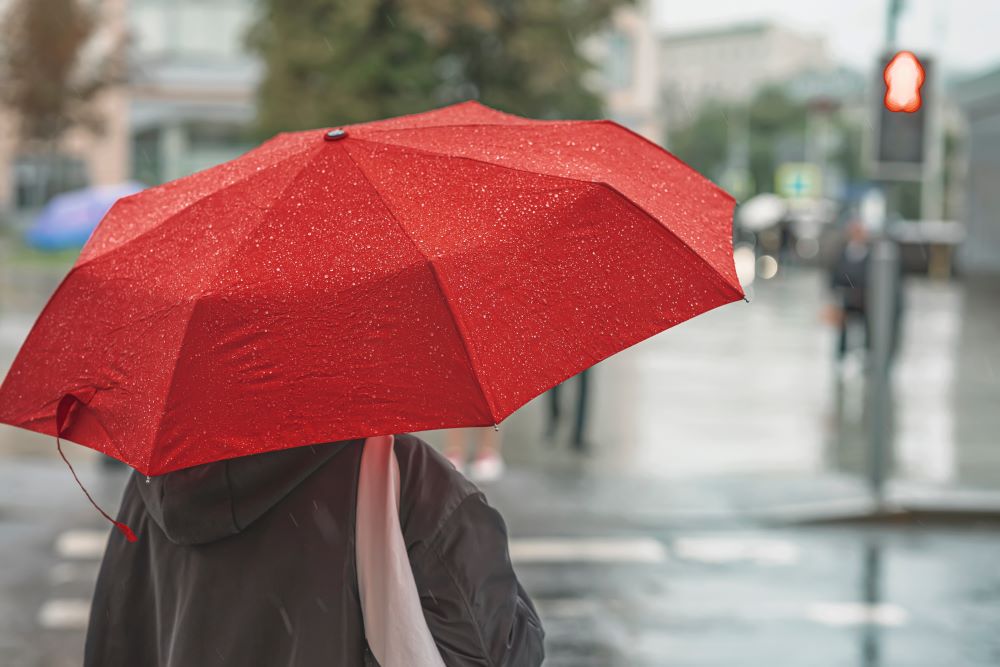Building a successful personal injury claim of any type in Florida requires careful documentation. The strengths and weaknesses of an injured person’s case, as reflected in the available evidence, will play a significant role in determining how much the case will settle for or if a settlement will be reached at all.
Some details of a slip and fall accident that need to be documented are obvious, such as the location of the accident, the hazard that caused the slip and fall, and the names and contact information of witnesses to the accident. One detail that often gets overlooked but can be crucial in succeeding with your slip and fall claim is the weather.
Why Weather Matters in Slip and Fall Cases
Knowing the weather conditions on the day of your slip and fall may not seem important initially.
Property owners who invite others to come onto their property have an obligation to make their property reasonably safe for those guests who enter the property. No law requires property owners to control the weather or demands that they close their business or property to others during inclement weather.
However, the weather can still significantly impact your slip and fall case. For example, snow or rain in a business’s parking lot can create slippery or hazardous conditions as you walk across the parking lot to the store.
Once you are inside the business or property, snow or rain that others have brought into the building can accumulate at the threshold and beyond. This, too, creates a slip and fall hazard that the property owner could be responsible for addressing.
Therefore, while the property owner where you slipped and fell may not be responsible for the weather, they could be responsible for the effects and dangers that the weather conditions create. Proving the weather conditions that existed on the date of your accident can be an important part of establishing the owner’s liability for your injuries.
Property Owners’ Liability for the Weather
Florida law generally requires businesses to alert customers of dangerous conditions in their stores and on their properties. Where feasible, owners must also take reasonable steps to correct these conditions. The business must also make reasonable inspections of its property and look for potentially hazardous conditions.
Florida weather can be unpredictable, but businesses may find that they need to protect their customers by:
- Blocking off portions of the parking lot where there are deep puddles
- Regularly mopping entryways and walkways
- Looking for holes in the roof during periods of heavy rain
- Providing mats for customers to wipe their feet off before venturing further into the store
Suppose that you slip and fall on a hazard in a business that is caused by the weather outside. A business owner may try to evade liability by claiming they took reasonable precautions under the circumstances.
For example, the business owner may say it had no foreknowledge of anticipated severe weather, so it was unprepared for the heavy rainfall. Or it may even dispute that there was any significant rainfall at all, and thus, there was no need for the business to employ extra safety measures.
Therefore, in these and similar situations, being able to reference the forecast and demonstrate the weather conditions for the day of your accident can mean the difference between your claim’s success or failure.
How to Document Weather Conditions
There are various forms of documentation that can effectively prove what the weather was like on the day of your accident. These forms include the following:
- Archived news weather broadcasts from the day of your slip and fall
- Eyewitnesses who can testify to the location’s weather conditions
- Photographs showing puddles, water accumulation, and other hazards
- Internal communications from the business or other businesses advising of inclement weather or encouraging employees to take precautions
- Data and records from the National Weather Service, as well as any severe weather alerts issued by authorities
As is true with other data and information, the sooner you and your slip and fall injury lawyer try to collect and preserve weather data, the more successful your efforts can be.
How a Slip and Fall Lawyer Can Help
The right evidence can determine the outcome of your slip and fall claim, and the weather can play a key role in that evidence. A slip and fall injury attorney knows what evidence is critical to your claim and how to secure it.
When you hire a Florida slip and fall accident lawyer from Schrier Law Group, we can use our firm’s resources to gather the evidence and information needed to present a strong claim for compensation for you. Contact us to schedule your consultation today.






